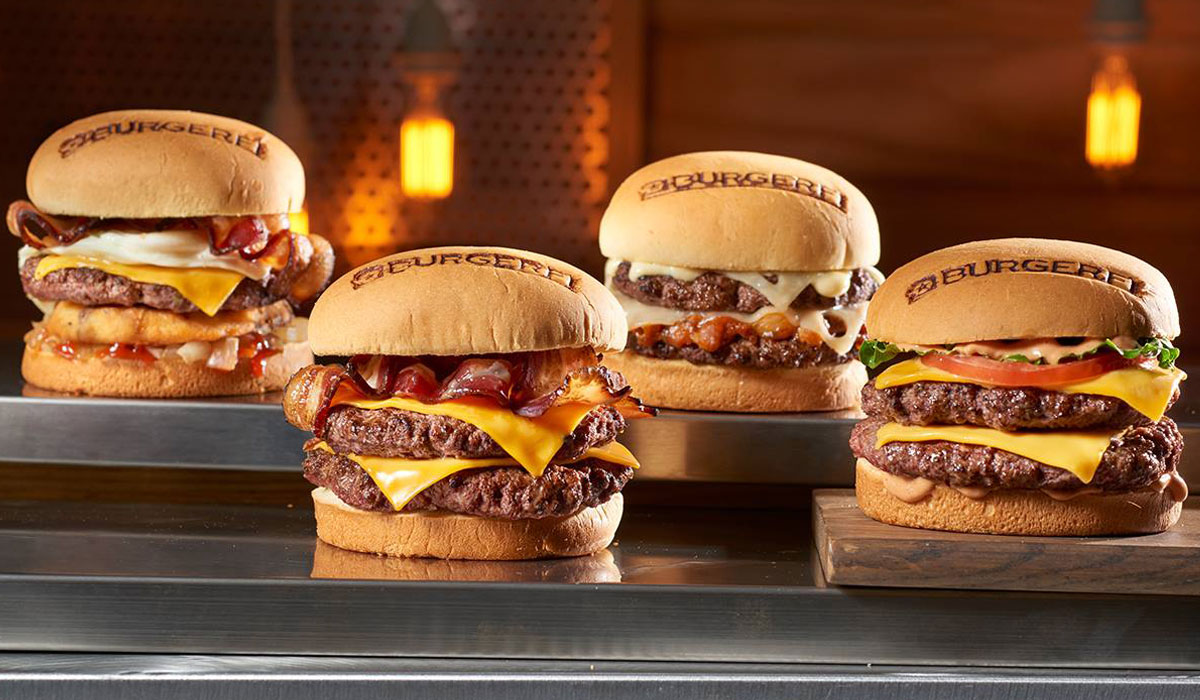BurgerFi CEO Carl Bachmann said Wednesday that after 90 days on the job, he’s “more confident than ever” about his decision to join the fast casual. He also described his progress thus far as “very productive.”
But a lot of work remains.
The brand’s same-store sales lowered 11 percent in Q3. That breaks down to a 15 percent dip at 26 corporate restaurants and a 9 percent drop for 84 franchised units. The difference in performance between the two groups is because franchised units have higher-performing nontraditional locations and corporate units are mostly based in a currently weaker South Florida market. Systemwide sales decreased 9 percent to $35.7 million, driven by declining comps and closure of underperforming restaurants. Meanwhile, Anthony’s same-store sales dropped 5 percent year-over-year.
Bachmann attributed sluggish sales to the lapping of Anthony’s 20th-anniversary celebration, reduced marketing spend ahead of his arrival, and softer performance in South Florida, a key market for both concepts. Companywide restaurant-level profit margin came in at 11.8 percent, down 100 basis points year-over-year because of higher labor and other expenses related to lower sales volumes.
“Our third quarter performance is clearly unacceptable and certainly not reflective of what we believe these brands and the people in this organization can accomplish,” Bachmann said during BurgerFi’s Q3 earnings call. “Having arrived at the company only 10 days into the quarter, these results are in no way indicative of the work we are doing or where we intend to take the business.”
Bachmann said those challenges are now in the rear-view as BurgerFi and Anthony’s execute strategies touching several parts of the business. First is the food options. BurgerFi recently unveiled the biggest menu enhancement in company history, including the rollout of wings and salad bowls. New chicken sandwiches will hit company stores later in November. This showcases the fast casual’s push into the “chicken wars” and its desire to push chicken mix to 10–15 percent, Bachmann explained. The chicken wings were the highest-reviewed new LTO in more than four years. Additionally, the company enhanced its previously poorly rated fries and removed less popular and process-intense menu items that slowed throughput and ticket times. Anthony’s expanded its menu with new pizza and pasta selections as well.
READ MORE:
BurgerFi’s Comeback Journey Officially Begins
Incoming BurgerFi CEO Unveils Energetic Plan of Action
In terms of technology, both brands are upgrading POS systems. For Anthony’s specifically, the chain removed its phone AI system because of negative feedback from guests and employees, and servers may start using handheld tablets to take orders. As for staffing, turnover decreased for both chains, which significantly reduced training costs at the restaurant level. This movement resulted in higher customer satisfaction scores and better throughput and ticket times.
“Sales and margin improvement will not happen overnight, but we are laying the foundation to grow upon. We believe they will come, and these improvements will begin to become evident to you, our stakeholders,” Bachmann told investors. “We’re making very educated, smart decisions using a very simple formula: We must win for our guests, win for the team members, and win for the shareholders and franchisees.”
As of October 2, there were 110 BurgerFi restaurants and 59 company-owned Anthony’s units. In the third quarter, the company shuttered four BurgerFi stores and one Anthony’s location as part of an ongoing effort to optimize the portfolio. The expectation now is that 12 to 15 franchised restaurants will open this year, down from the previous guidance of 15 to 20 stores.
BurgerFi has opened five outlets this year and Anthony’s hasn’t debuted any. In the fourth quarter, nine BurgerFi openings and one Anthony’s opening are expected. That includes the first co-branded BurgerFi and Anthony’s location scheduled to open next month in Florida and a flagship BurgerFi unit in New York City. This would be a busy period compared to what the company has done recently. For perspective, in full-year 2022, BurgerFi debuted 11 stores and Anthony’s didn’t have an opening.
Nine BurgerFi locations have closed through Q3.
“We’ve already assessed [lower-performing locations], and we’ll continue to do that through the end of the year,” Bachmann said. “We’re probably in the low single digits of looking at what’s left in our portfolio. So, we’ve already made some closures, both on corporate and franchise side. So, we’re in a much better place today. So, I think by the end of the year, we’ll have a very good idea, and there’s been a full good amount of time to assess.”
One focus is bringing in well-capitalized franchisees with restaurant, retail, and hospitality experience. Bachmann said the company has begun negotiations with several parties interested in multi-unit Anthony’s deals, including the sale of some corporate restaurants.
The group is also hoping to close the gap between high-volume and low-volume units by realigning its operational team.
“There is, for sure, this bifurcation, if you will, of stores that are high performers as well as stores that are not,” Bachmann said. “But I think a lot of it was about solidifying our operational leadership team. And since we’ve done that, well, a couple of things have happened. Our throughput has gotten better. Our ticket times have gotten better. Our turnover is significantly better, both hourly and management. So, really that piece of operational focus has helped us, and that’s really kind of created that bifurcation. And then, kind of early into the third quarter, we then added some more strength to our operational team. And now we’re starting to see positive green shoots, if you will, in those two markets as well.”
Going forward, BurgerFi will dig more into nontraditional spaces. The chain entered a licensing agreement with Apple Cinemas to operate a franchised location within a theater in Rochester, New York. The spot will also provide pickup and third-party delivery service capabilities. Bachmann said nontraditional venues are “the best way to accelerate growth” because they “greatly increase our awareness and visibility of our brands.”

